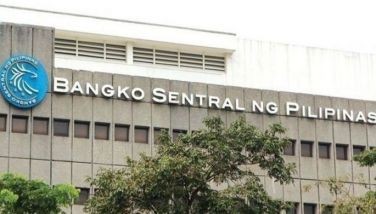Mango exporters get reprieve in China
August 30, 2006 | 12:00am
Mango exporters are getting a reprieve with China’s decision to continue allowing even after Sept. 1 the shipment of fresh mangoes from the Philippines that have not undergone vapor heat treatment (VHT).
Agriculture Secretary Domingo F. Panganiban said the Chinese government has temporarily suspended the scheduled Sept. 1 implementation of the VHT treatment in its Philippine mango imports.
Panganiban said China has agreed to wait for the release of the pest risk analysis on Chinese carrots being eyed for exports to the Philippines.
"China has agreed to postpone the requirement because the pest risk analysis for their carrot is also still pending approval in the Philippines," said Panganiban.
China, not known to impose rigid quarantine rules, took Filipino mango exporters by surprise when it announced the interception of six shipments of fresh mangoes from the Philippines that were allegedly infested with fruit fly.
It had since then required the VHT treatment and said it would consequently ban shipments that do not undergo the treatment.
The Chinese government had earlier set the deadline on May 1, 2006 but had agreed to defer this to Sept. 1, 2006.
A team of mango experts from the Philippines is in China to investigate the fruit fly incidents cited by Chinese quarantine officials.
On another front, exporters of fresh and processed mango face a new threat as one of the industry’s major markets, Japan has further restricted the allowable residue levels in chemical-based pesticides.
In particular, Japan’s Ministry of Agriculture, Fishery and Forestry (MAFF) imposed last May 29 a 0.03 parts per million (ppm) maximum residue level (MRL) for the chemical Cypermethrine which is used as a pesticide.
Cypermethrine is among toxic chemicals that Japanese health authorities had earlier wanted to ban in compliance with the the new and tougher food safety standards issued by Japan’s Food Safety Commission (FSC). In recent years, FSC has been setting new MRLs for imported fresh agricultural produce because of the strong clamor of health-conscious Japanese consumers.
In 2005, Japanese health authorities banned a number of fresh mango shipments from the Philippines after quarantine inspectors discovered these shipments exceeded the MRl for Chlorypyrifus.
A source from the Bureau of Plant Industry said Japan had long set the MRL for Cypermethrine but it only started imposing it to exporters of fresh produce last end May.
An initial positive list of MRLs for more than 700 compounds prepared by the FSC and Japan’s Ministry of Health Labor and Welfare was submitted this year to the World Trade Organization (WTO).
Currently, Japan follows the Codex Alimentarius Commission (CAC) international residue standards if it does not have a MRL established for a particular chemical. If CAC does not specify a residue limit on a chemical, Japan usually defers to US standards.
Cypermethrine, like Chlorpyrifos, is a restricted pesticide which is also used as a termicide.
Its improper use is known to cause cholinesterase inhibition in humans. It can overstimulate the nervous system causing nausea, dizziness, confusion, and at high exposures, respiratory paralysis, and death.
Agriculture Secretary Domingo F. Panganiban said the Chinese government has temporarily suspended the scheduled Sept. 1 implementation of the VHT treatment in its Philippine mango imports.
Panganiban said China has agreed to wait for the release of the pest risk analysis on Chinese carrots being eyed for exports to the Philippines.
"China has agreed to postpone the requirement because the pest risk analysis for their carrot is also still pending approval in the Philippines," said Panganiban.
China, not known to impose rigid quarantine rules, took Filipino mango exporters by surprise when it announced the interception of six shipments of fresh mangoes from the Philippines that were allegedly infested with fruit fly.
It had since then required the VHT treatment and said it would consequently ban shipments that do not undergo the treatment.
The Chinese government had earlier set the deadline on May 1, 2006 but had agreed to defer this to Sept. 1, 2006.
A team of mango experts from the Philippines is in China to investigate the fruit fly incidents cited by Chinese quarantine officials.
On another front, exporters of fresh and processed mango face a new threat as one of the industry’s major markets, Japan has further restricted the allowable residue levels in chemical-based pesticides.
In particular, Japan’s Ministry of Agriculture, Fishery and Forestry (MAFF) imposed last May 29 a 0.03 parts per million (ppm) maximum residue level (MRL) for the chemical Cypermethrine which is used as a pesticide.
Cypermethrine is among toxic chemicals that Japanese health authorities had earlier wanted to ban in compliance with the the new and tougher food safety standards issued by Japan’s Food Safety Commission (FSC). In recent years, FSC has been setting new MRLs for imported fresh agricultural produce because of the strong clamor of health-conscious Japanese consumers.
In 2005, Japanese health authorities banned a number of fresh mango shipments from the Philippines after quarantine inspectors discovered these shipments exceeded the MRl for Chlorypyrifus.
A source from the Bureau of Plant Industry said Japan had long set the MRL for Cypermethrine but it only started imposing it to exporters of fresh produce last end May.
An initial positive list of MRLs for more than 700 compounds prepared by the FSC and Japan’s Ministry of Health Labor and Welfare was submitted this year to the World Trade Organization (WTO).
Currently, Japan follows the Codex Alimentarius Commission (CAC) international residue standards if it does not have a MRL established for a particular chemical. If CAC does not specify a residue limit on a chemical, Japan usually defers to US standards.
Cypermethrine, like Chlorpyrifos, is a restricted pesticide which is also used as a termicide.
Its improper use is known to cause cholinesterase inhibition in humans. It can overstimulate the nervous system causing nausea, dizziness, confusion, and at high exposures, respiratory paralysis, and death.
BrandSpace Articles
<
>
- Latest
- Trending
Trending
Latest
Trending
Latest
Recommended





























